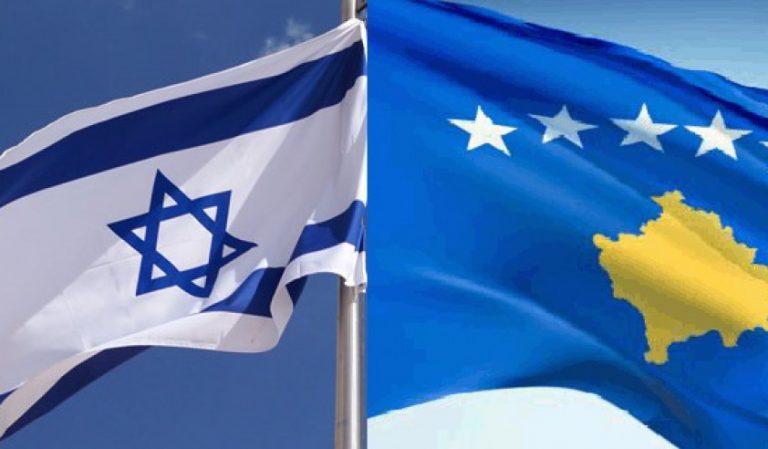The establishment of official relations between Israel and Kosovo and mutual recognition sent a signal to the opposing countries of the Kosovo statehood and with that also the EU non recognizing fiver that are Spain, Greece, Cypruss, Romania and Slovakia. EU has not been a supporter of the Independence of Kosovo since its declaration on the 17th of February 2008 but supported Kosovo on its European perspective and European integrations in various ways. However, the EU support has not always been in line with the Kosovo’s foreign policy. One of the cases is also the negotiations mediated by President Trump and the Agreement signed at the White House where Kosovo managed to secure the recognition by the state of Israel.
The establishment of diplomatic relations between Kosovo and Israel is seen by many as the beginning of another round of recognitions expected for Kosovo despite Kosovo being in a challenging political crossroad with difficult elections in February 2021 and its Kosovo Liberation Army accused of war crimes. Diplomatic relations between Israel and Kosovo is a signal that Kosovo has been accepted as a unique situation or what international lawyers like to call ‘a sui generis case,’ which was a problematic issue especially for Cyprus, Romania and Spain due to secessionist movements in their own countries. Similarly, Israel’s progress in establishing diplomatic relations with Morocco and UAE, and Kosovo being recognized by Israel, is a good indicator for the progress both in the troubling Balkans and Middle East despite political capitalization from President Trump and Prime Minister Natanyahu as well as Prime Minister Hoti of Kosovo. Serbia’s President Vucic, was not very happy about this outcome yet he signed a document that committed to ‘normalization of economic relations with Kosovo’ on September 4th 2020 at the White House together with Prime Minister Hoti of Kosovo in an audience with President Trump.
What stirred EU politics lately as well as Turkish foreign ministry is this act of diplomatic mutual relations where Kosovo officially declared that it will open its Embassy to Israel in Jerusalem. Peter Stano, an EU Foreign Policy Spokesperson, declared that the EU position is that the embassies of EU countries should be located in Tel Aviv. Stano had reacted the same even after the Washington agreement on September 4 last year, he had expressed “serious concern and regret regarding the warning that Serbia and Kosovo will establish embassies in Jerusalem. Similar reaction was received from the Turkish MFA in reaction against such decision by Kosovo Government. Kosovo Government’s stand is that it will open the Embassy in Jerusalem as soon as conditions allow, which means practically, once the pandemic lock down is over.
Despite Serbia’s promise to do the same, they are yet to do such an act. EU has not reacted to Serbia yet and has not reacted against Serbia even at the time when the so called ‘stabilization agreement’ was signed at the White House. Serbia’s politics flows from alliances with China and Russia on several fronts including the 5G untrusted vendors installed by Huaiwei in Belgrade beginning from last year to arms deals with Russia and installation of Russian defense technology in Serbia as well as military bases such as the one near Nis. The flirt of East-West of Serbia is almost unnoticed despite President Vucic’s declarations that EU is like a stepmother to Serbia whereas he called Xi Jinping, a brother when China donated medical supplies to fight the pandemic situation in Serbia. Vucic accused EU of closing the border and turning its back to Serbia when they needed.
Serbia’s foreign policy in a hybrid situation with EU and members states of the EU as Serbian Foreign Policy mostly consists of playing a double-edged sword, receiving donations from the EU and playing the ‘non-allied’ card when needed. For historic reasons such as NATO bombing of Yugoslavia, Serbia is at large in a alienated feelings with NATO and NATO members as well. Yet, EU and NATO rarely seem to react towards Serbian foreign policy of same nature with Kosovo. Such is the case with deployment of Embassies in Jerusalem.
Is EU applying double standards in the Western Balkans?
The Israeli-Kosovo friendship has not started with the establishment of diplomatic relations and opening the Kosovo Embassy in Jerusalem. Israel received Kosovar refugees during the war in 1999 and supported Kosovo’s case internationally but the precedent of secession is understandably problematic for Israel. Despite this, Kosovars who played a very important role in rescuing Jewish population throughout Kosovo towards Albania during the Holocaust, kept working on establishing historic records straight with renovating Jewish Cemetery in Prishtina, erecting a plaque to commemorate the venue where a Jewish Synagogue was destroyed by communist regime and always maintained great sympathy for Israel.
As portrayed well in the documentary by Norman Gershman, “Besa-The Promise (2012), the Jewish population of Albania from 200 before the World War II increased to 2000 after the War. The Jewish population fled through Yugoslavia and Kosovo where Albanian families of border region of Kosovo helped them escape to Albania where they were given new identity and were rescued. Oral history tradition is very strong among Kosovar Albanians on this issue and great sympathy for Jews has passed through generations.
The establishment of diplomatic relations between Israel and Kosovo and mutual recognition is only a natural step. Kosovo has acted according to its foreign policy goals and as a sovereign nation, has the right to do so. Despite EU’s stand that it will remain status neutral when it comes to Kosovo, their declaration against Kosovo’s decision to open an Embassy in Jerusalem, is not status neutral but rather opposing Kosovo’s Foreign Policy decisions. The question that remains unanswered is that if EU is indeed committed to help Kosovo come to a state where it can decide on its own and whether EU has double standards when it comes to Kosovo and Serbia on the same issues?
Author
-

Kosovo based analyst that focuses on current affairs, communication and technology. She studied Albanian Literature, and Economics, Management and Information Sciences. MA in Journalism and Communication. Co-authored the Worlds of Journalism Study report on Kosovo Journalists.
View all posts



